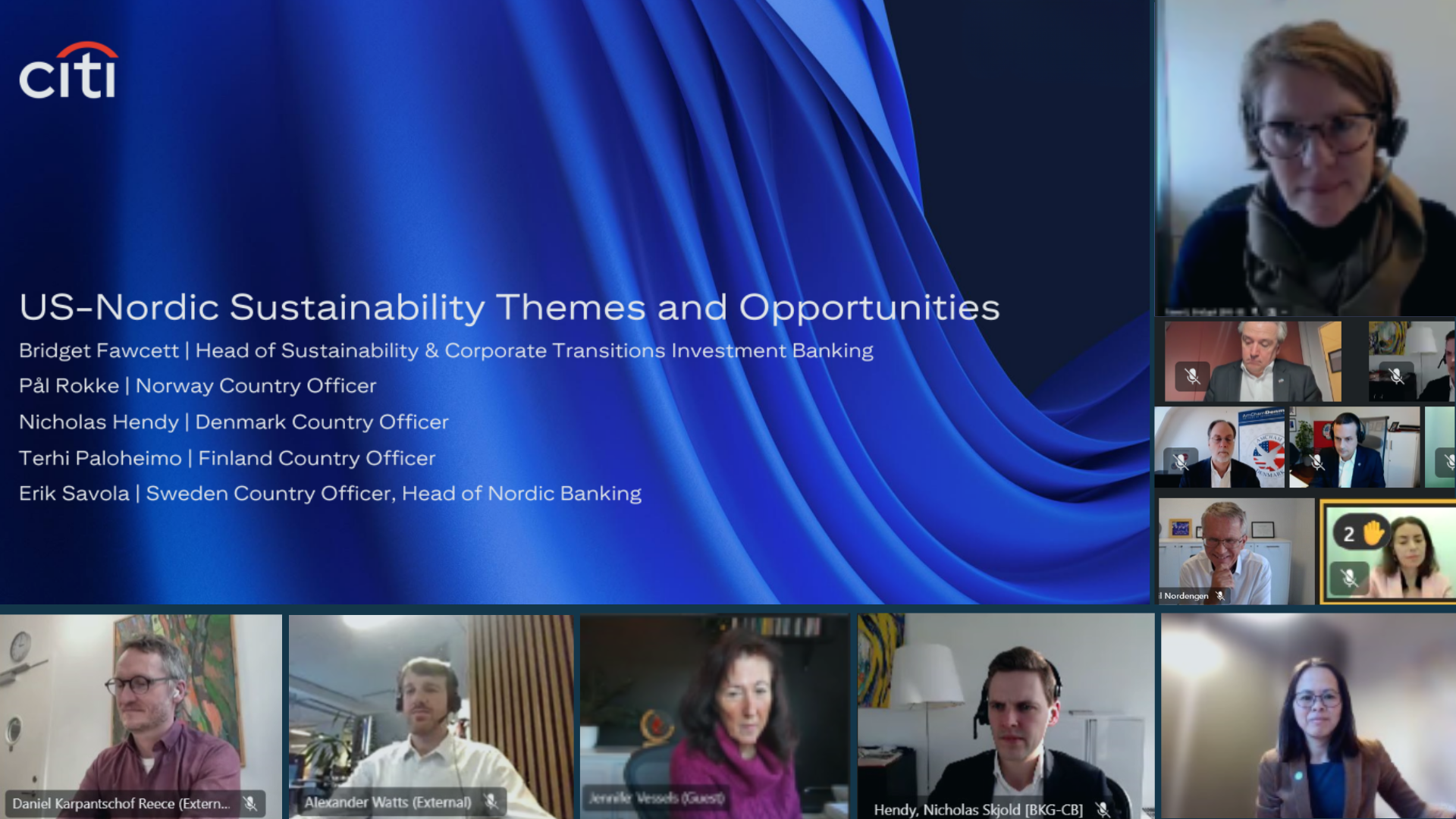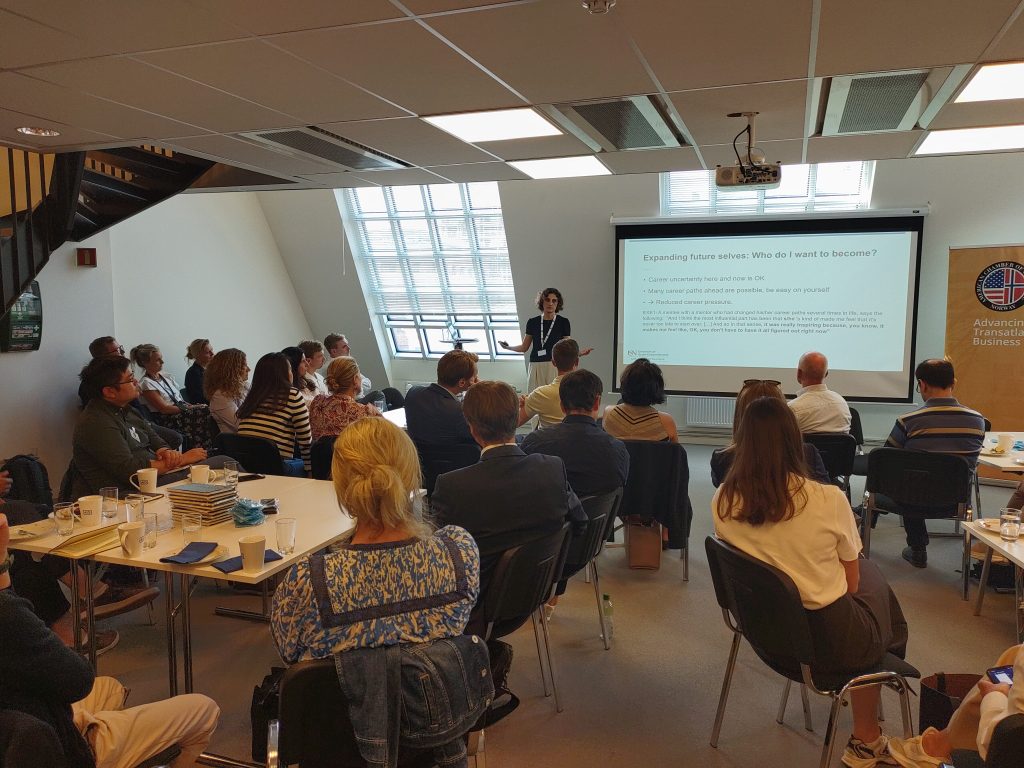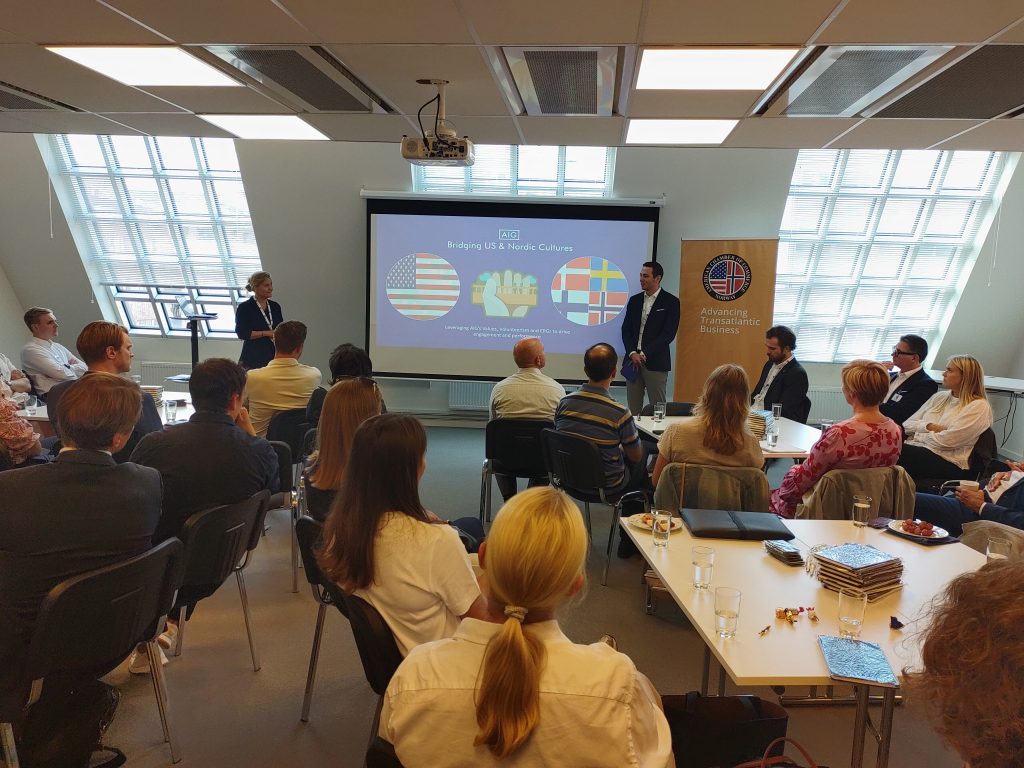AmCham Norway regrets the US administration’s recent decision to impose reciprocal tariffs on imported goods. The imposition of a minimum 10% tariff on all countries, with Norway facing 15% and the European Union 20%, represents a significant setback for the principles of free and fair trade that have long underpinned our global economic relationships. This decision undermines the stability and predictability that businesses rely on for growth and innovation.
The introduction of these tariffs poses a substantial threat to the economic stability and growth of businesses not only in Norway, the EU and the US, but across the globe. The transatlantic relationship, valued at $9.5 trillion and historically a cornerstone of global economic prosperity, now faces the risk of erosion. The US administration’s assessment, influenced in part by the 2025 National Trade Estimate Report on Foreign Trade Barriers, should instead encourage collaborative solutions rather than protectionist measures. We urge the administration to reconsider its approach and engage in meaningful dialogue to resolve trade disputes without disrupting supply chains and increasing costs for consumers.
Norway is closely monitoring the situation, while the EU has indicated it is preparing countermeasures, set to be implemented in mid-to-late April if a negotiated solution is not found.
While the April 2 Executive Order includes exemptions for certain goods – such as copper, pharmaceuticals, semiconductors, and steel and aluminum products already subject to Section 232 tariffs – the overall impact remains damaging. Rather than imposing new barriers, we advocate for constructive engagement to reach a solution that preserves beneficial transatlantic trade relationships. Additionally, we encourage the pursuit of a comprehensive free trade agreement between Norway and the United States. Such an agreement would not only eliminate trade barriers but also strengthen economic cooperation, fostering continued growth, innovation, and job creation.
By prioritizing open trade, both nations can reinforce the economic ties that have long united them.










































